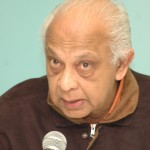A Brief Colonial History Of Ceylon(SriLanka)
Sri Lanka: One Island Two Nations
A Brief Colonial History Of Ceylon(SriLanka)
Sri Lanka: One Island Two Nations
(Full Story)
Search This Blog
Back to 500BC.
==========================
Thiranjala Weerasinghe sj.- One Island Two Nations
?????????????????????????????????????????????????Saturday, August 19, 2017
Continuing Torture & Sexual Violence In Sri Lanka – Part V

Continued from Wednesday
Chapter 11 – Aftermath
“Family
members in Sri Lanka remain under surveillance and intelligence
services ask them where the victim has gone. This seems to be more about
keeping the family silent and tracking the victim abroad, rather than
investigating an escape which the security services themselves
facilitated”
Suicide attempts
“The
levels of trauma amongst recent torture victims from Sri Lanka, many of
whom have attempted suicide, are alarming. Most of those we interviewed
describe having contemplated suicide at some point. Typically the
trigger is reprisals against relatives or being rejected for
asylum……many victims describe themselves as suicidal and/or self
harming. They must cope with the physical pain after torture as well as
mental trauma and, on top of this, often find themselves in a foreign
country.
Two
of the 2016/17 torture cases tried to kill themselves almost
immediately on arrival in the UK, one had to be hospitalised from the
airport. It is worth noting that this is hardly the action of economic
migrants desperate to reach Europe to secure a better life.
Immigration detention centres
“Being placed in immigration detention on arrival in the UK also exacerbated the suicidal feelings.”
I
might add that asylum seekers arriving in Australia can remain in
detention centres for years. I have described these detention centres,
some in mainland Australia and some off shore in Christmas Island, Papua
New Guinea (Manus Island), and in Nauru as ‘manufacturing centres for
mental disease’. It is a gross violation of the UN Refugee Convention,
signed and ratified by Australia (and the UK).
Re-traumatising
“The
asylum application process is slow, leaving the victim in limbo, unable
to work, unable to access support services effectively or reunite with
loved ones”.
Australia’s
asylum-seeker policy is an international disgrace, probably the worst
in the world. There is an excellent book by Jane McAdam and Fiona
Chong: “Refugees. Why seeking asylum is legal and Australia’s policies are not”. I strongly recommend this book.
The next two Chapters are very important. I will quote from them extensively.
Chapter 12 – Conclusion
“The
UN Investigation into Sri Lanka described the modus operandi of “white
van” abductions and established that incidents of sexual violence were
not isolated acts but part of a deliberate policy to inflict torture by
the security forces. Nothing has been done by the new Government to
break this culture of impunity, even when a torture site has been
identified by the ITJP and corroborated by visiting International teams.
After
two and a half years in office, the Government’s failure to investigate
past allegations makes it complicit in the continuation of the
violations.
There
has also been no attempt to vet public officials despite the commitment
in UN HRC Resolution 30/1 to do this. Instead, the Government has
rewarded alleged torturers and officials allegedly implicated in war
crimes. As the ITJP reports show, alleged perpetrators have been sent
abroad as diplomats and members of delegations to UN committees.
The
ITJP evidence base s built on hundreds of detailed witness statements,
through which the ITJP has now identified several alleged perpetrators
(direct and in positions of command responsibility) and torture sites,
but there are regrettably no witness protection mechanism for witnesses
and victims inside or outside to testify, be it to a truth commission or
court. The evidence base has been amplified by insider witnesses who
confirm the modus operandi and methodology as well as identity of many
of the torturers.
The
Government has excused its failure to investigate saying it is waiting
for a special court to be set up. However, it is now clear that the
Prime Minister and President have no intention of establishing a hybrid
court as the (former) Foreign Minister promised in Geneva in 2015. The
President reassured the security forces in person and in public that not
one of them will be charged with human rights violations, which
reinforces the culture of impunity. The UN High Commissioner for Human
Rights has made it clear that another domestic mechanism will not have
the trust of victims after so many have failed to deliver justice.
Furthermore, the limitations in the current criminal justice system
render it incapable of delivering justice for serious crimes.


 By
By 